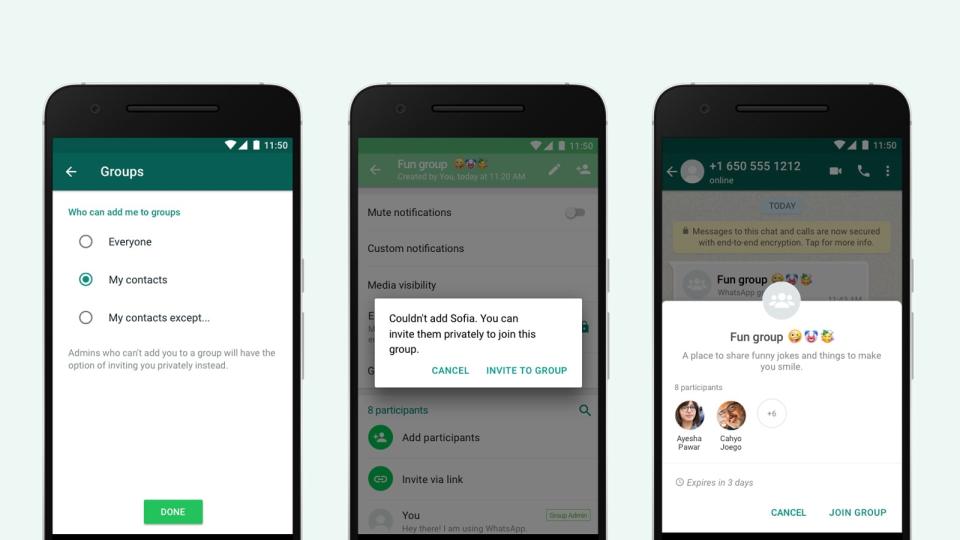WhatsApp gives you more ways to avoid annoying group chats
You can exclude people within your contacts.
WhatsApp is giving you more ways to block people from adding you to group chats. Its updated privacy settings replace the original "nobody" option with a "my contacts except" choice that lets you prevent certain people (or all of them, if you prefer) from dragging you into a group. Your close friends and family can add you to a chat, for example, but a co-worker can't rope you into a sports discussion without your permission.
Like earlier, a chat administrator who doesn't have permission can still send a private invitation through an individual chat. The request will disappear after three days, so you can ignore it if you'd rather not respond.
The feature should be active now on Android and iOS. This is an acknowledgment that unwanted group invitations are still an issue, of course, but it's also part of an ongoing effort to fight fake news. There should be fewer opportunities for people to spread misinformation, at least to people who weren't already receptive to it.

 Yahoo Finance
Yahoo Finance 

